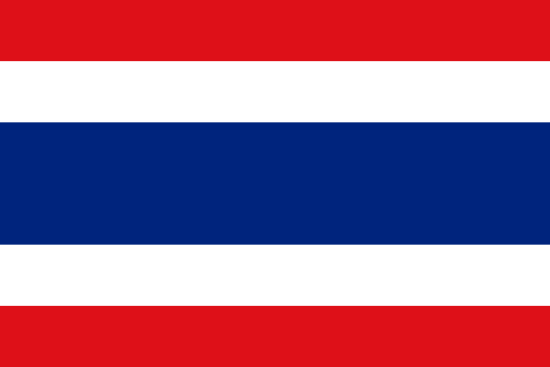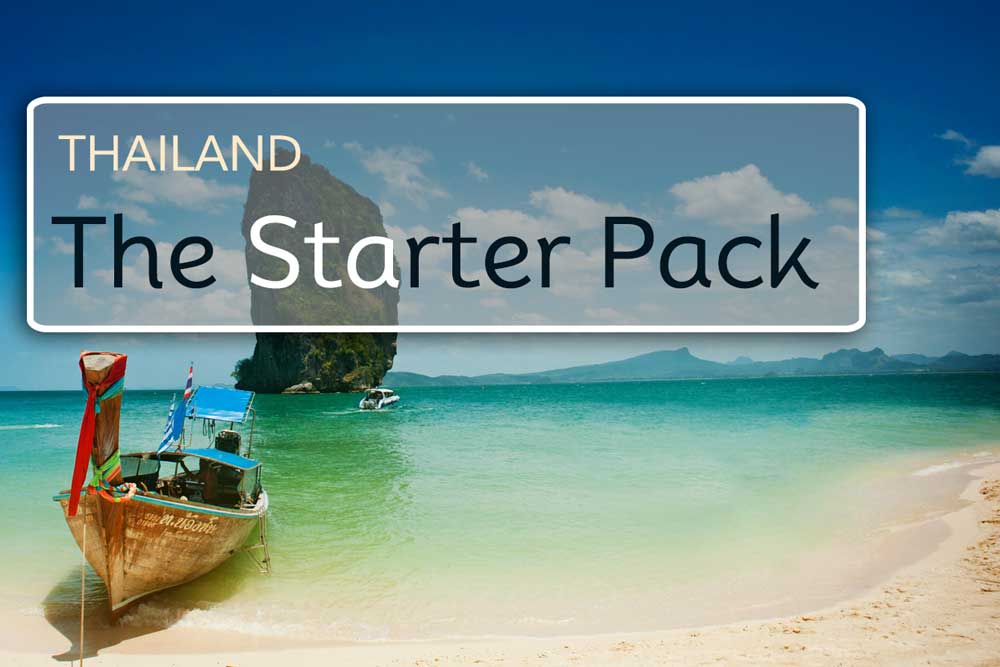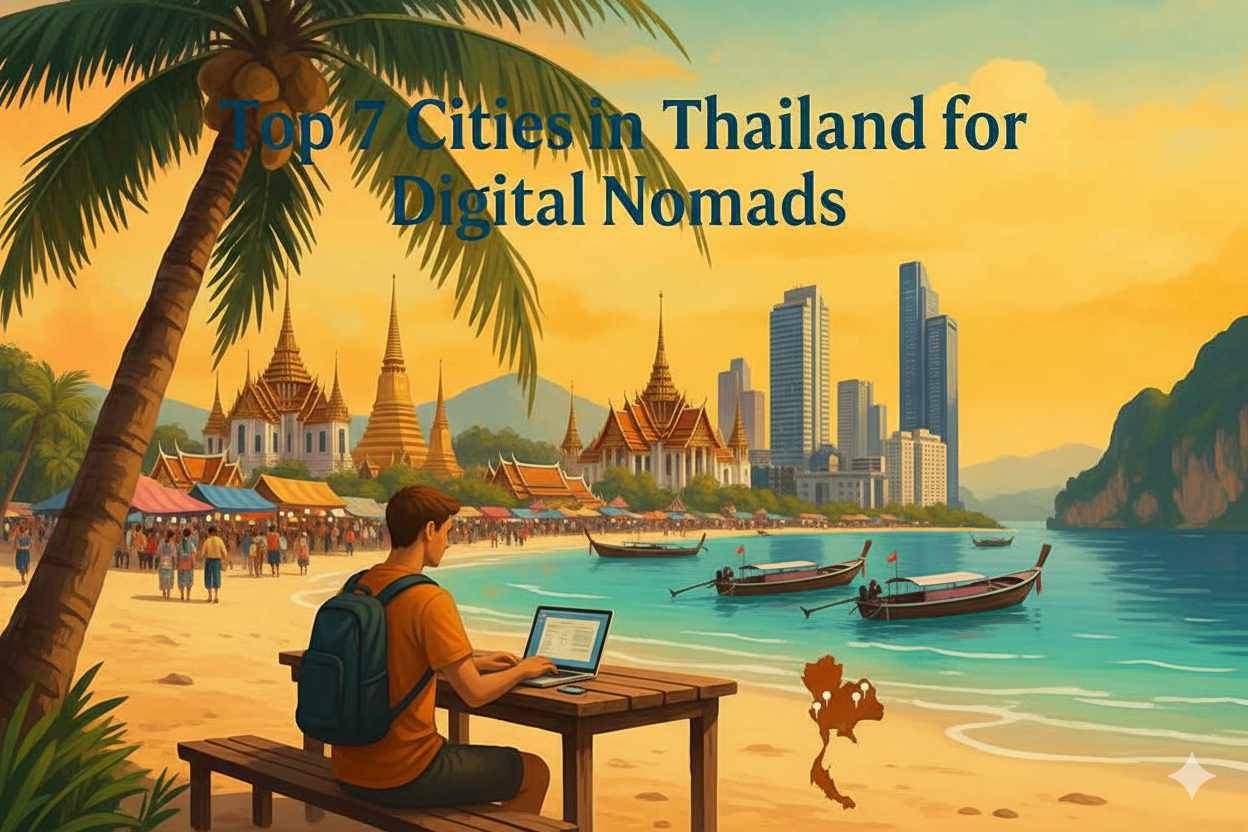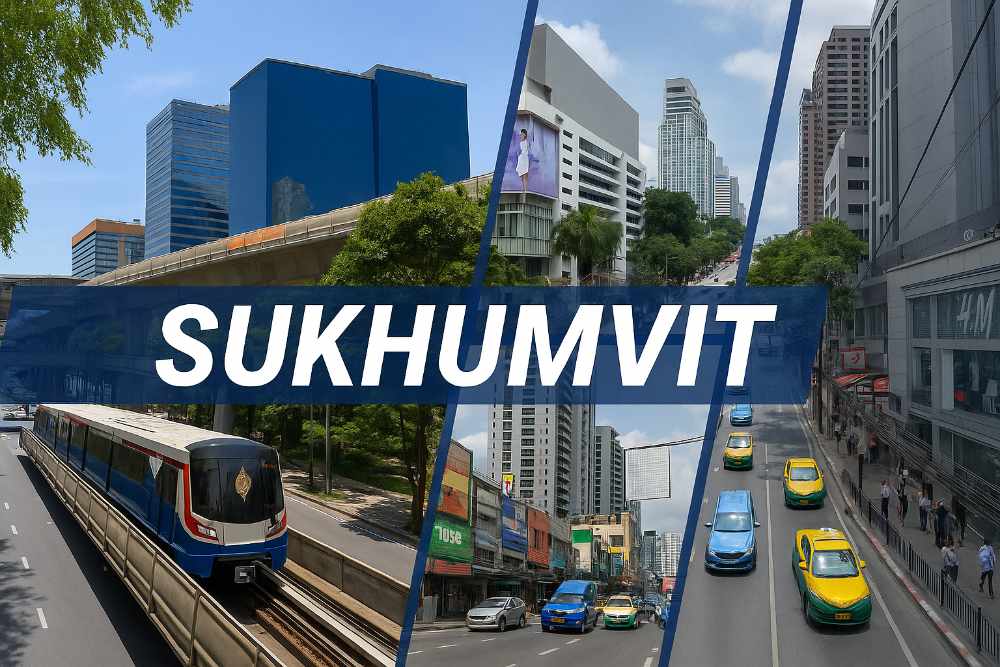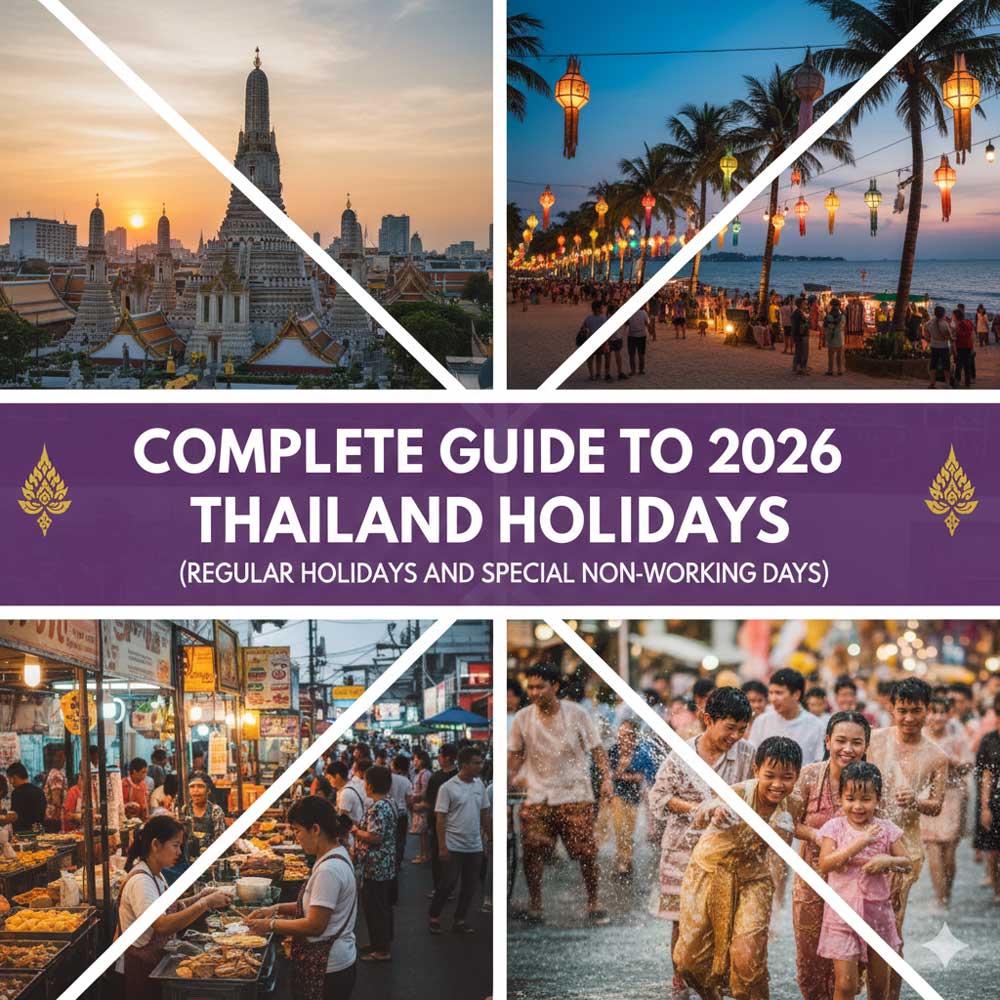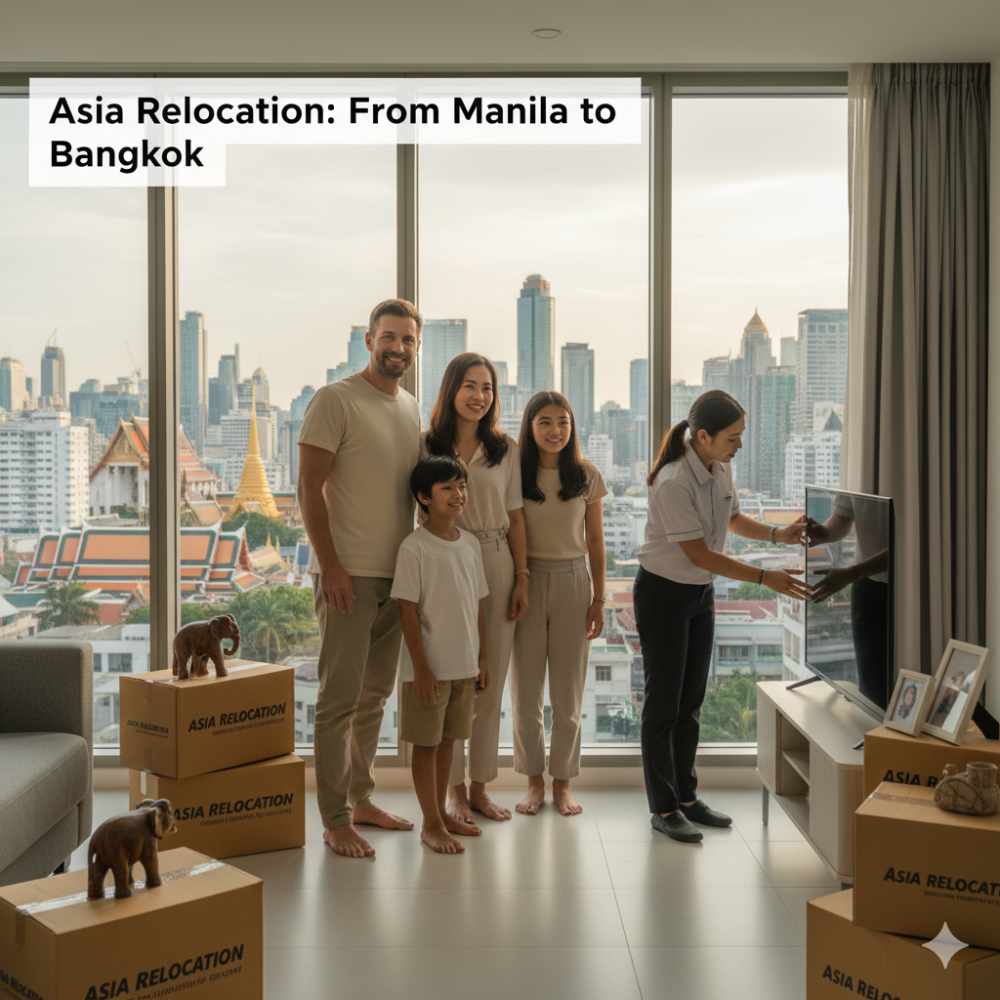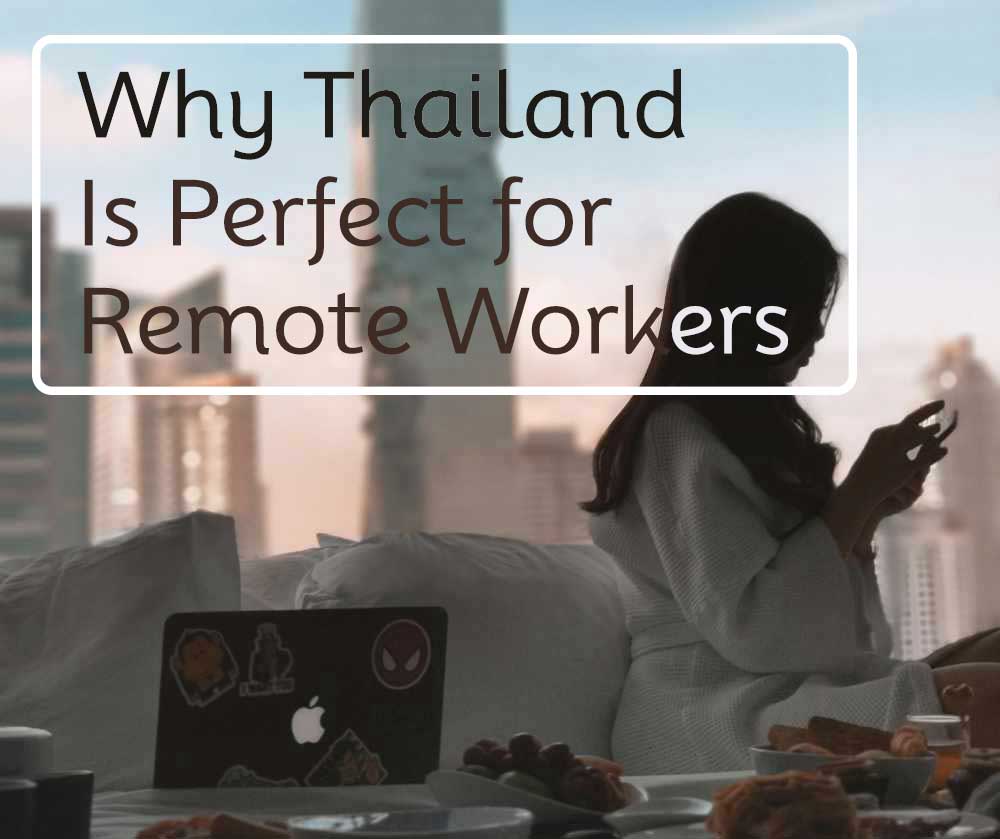
Why Thailand Is the Ultimate Relocation Destination for Remote Workers
Remote work has opened up a world of possibilities—but few destinations deliver the unique combination of affordability, connectivity, and lifestyle that Thailand offers. With blazing-fast internet, a welcoming culture, and landscapes ranging from bustling megacities to tranquil tropical islands, Thailand has become a magnet for digital nomads, freelancers, and startup founders ready to transform their work-life balance.
Whether you’re building your business from a Bangkok high-rise or answering emails from a beachside café in Koh Phangan, Thailand provides the infrastructure, community, and inspiration remote workers need to thrive.
From Urban Energy to Island Serenity: Choose Your Ideal Workspace
One of Thailand’s greatest strengths is its diversity. Remote workers can tailor their environment to match their productivity style and lifestyle preferences:
Bangkok offers the pulse of a modern megacity—think sleek coworking spaces, international networking events, and a thriving startup ecosystem. The city’s Sukhumvit corridor and Silom district are hubs for professionals seeking urban energy and global connectivity.
Chiang Mai appeals to creative minds and digital entrepreneurs who prefer a slower pace. Surrounded by mountains and dotted with cozy cafés, this northern city has cultivated one of Asia’s most established digital nomad communities. For insights into cultural rhythms that shape daily life here, explore our guide to Thailand’s holidays.
Island destinations like Phuket, Koh Samui, and Koh Phangan blend productivity with paradise. Imagine starting your day with a sunrise swim, then settling into focused work before exploring night markets or joining a beach volleyball game.
No matter where you land, Thailand’s Digital Nomad Visa (DTV) program offers 5-year validity with flexible 180-day stays, making long-term planning easier than ever.
Stretch Your Income Further Without Sacrificing Quality
Thailand’s cost of living is a game-changer for remote professionals. Your salary goes significantly further here than in most Western cities:
- Housing: Furnished apartments start around $300–$500/month in Chiang Mai, $600–$1,000 in Bangkok
- Food: Street food meals cost $2–$5; high-quality restaurant dining rarely exceeds $15
- Healthcare: World-class private hospitals offer consultations for $30–$50
- Transportation: Modern public transit, affordable taxis, and motorbike rentals keep mobility costs low
- Wellness: Yoga classes, Thai massages, and gym memberships are a fraction of Western prices
This financial flexibility means you can invest more in experiences, savings, or growing your business.
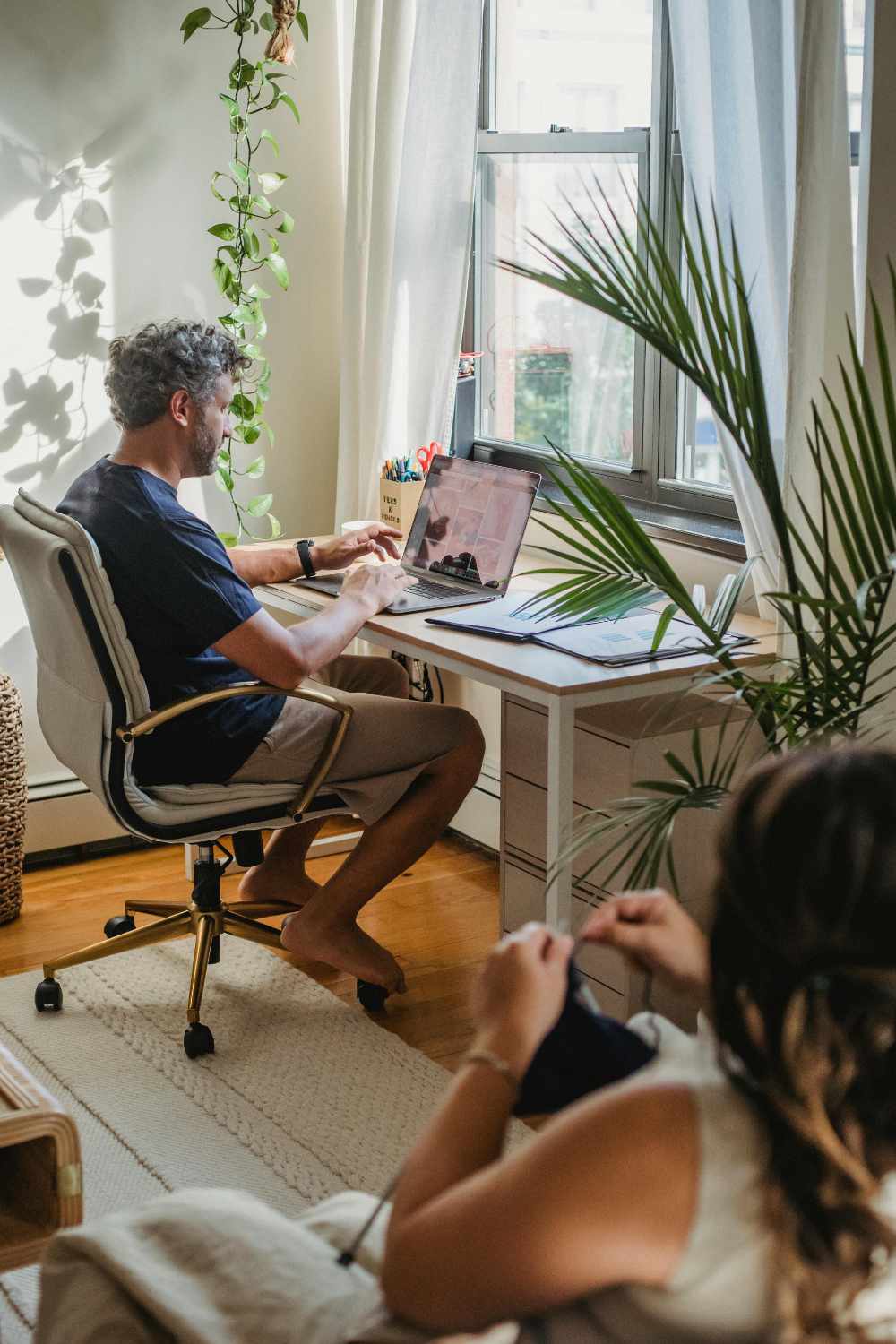
Thailand’s Digital Nomad Infrastructure: What to Expect
Thailand’s maturity as a digital nomad destination means you’ll find robust infrastructure supporting remote work across these cities and even on smaller islands, you’ll find::
Co-working Ecosystem:
- Premium international brands (WeWork, Regus) in Bangkok and major cities
- Local favorites with community focus (Punspace in Chiang Mai, KoHub in Koh Lanta)
- Drop-in day passes starting from 150-400 THB ($4-11 USD)
- Monthly memberships typically 3,000-8,000 THB ($85-220 USD)
Internet Connectivity:
- Fiber optic widely available in urban areas (100-1000 Mbps common)
- Reliable 4G/5G mobile networks from AIS, TrueMove, and DTAC
- Backup internet solutions essential for islands and remote areas
- Average cost: 600-1,200 THB ($17-33 USD) monthly for home internet
Cost of Living Ranges:
- Budget lifestyle: $800-1,200 USD/month (smaller cities, modest accommodation)
- Comfortable lifestyle: $1,500-2,500 USD/month (good apartment, regular dining out, co-working)
- Premium lifestyle: $3,000-5,000+ USD/month (luxury condo, international amenities, frequent travel)
For detailed budget planning and cost comparisons across Thai cities, consult with Asia Relocation’s destination specialists who provide current, accurate information based on real expat experiences.
Thailand’s government has recognized the economic value of remote workers and continues investing in digital infrastructure. According to Thailand’s Board of Investment, the country aims to position itself as Southeast Asia’s leading digital hub.
If you’re shipping work equipment or personal belongings, our international shipping guide covers everything from customs regulations to packaging best practices.
Join a Global Community of Like-Minded Professionals
You’ll never feel isolated as a remote worker in Thailand. The expat and digital nomad communities here are some of the most vibrant in the world:
- Weekly meetups and networking events in every major city
- Industry-specific groups for developers, designers, marketers, entrepreneurs
- Social activities from Muay Thai classes to island-hopping trips
- Mastermind groups for accountability and business growth
- Language exchange sessions to deepen your cultural integration
These connections often lead to unexpected collaborations, client referrals, and lifelong friendships. For guidance on building meaningful relationships after your move, read our insights on cultural adaptation for expats.
Wellness Isn’t a Luxury—It’s a Lifestyle
Thailand’s culture naturally supports work-life balance and personal wellbeing:
- Outdoor activities abound: Beach swimming, jungle trekking, island kayaking, rock climbing
- Mindfulness practices: Buddhism influences daily life; meditation retreats and yoga studios are everywhere
- Healthy eating: Fresh tropical fruits, plant-based options, and clean street food make nutritious eating effortless
- Stress reduction: The Thai concept of “mai pen rai” (no worries) encourages a more relaxed approach to challenges
- Affordable self-care: Regular massages, spa treatments, and wellness activities fit easily into any budget
Many remote workers report feeling healthier and more energized after relocating to Thailand. The combination of outdoor access, social connection, and cultural emphasis on balance naturally combats the isolation and burnout common in remote work.

Navigating Your Relocation: Expert Support Makes All the Difference
Moving to a new country involves complex logistics—visa applications, housing searches, shipping regulations, cultural adjustment—but you don’t have to figure it out alone.
Visa considerations:
Thailand’s retirement visa requires an 800,000 THB bank deposit for those 50+, while younger professionals typically use the DTV or work permits tied to Thai companies. The Thai Ministry of Foreign Affairs provides official visa information, though navigating the application process can be confusing.
Housing strategies:
Short-term serviced apartments give you time to explore neighborhoods before committing to a lease. Popular expat areas include Bangkok’s Districts 2 and 24, Chiang Mai’s Nimman area, and Phuket’s Chalong and Rawai beaches.
Shipping and customs:
Thailand has specific import regulations for electronics, furniture, and personal effects. Professional support prevents costly mistakes and delays.
Cultural integration: Understanding Thai etiquette, business customs, and social norms accelerates your sense of belonging. Our team at Asia Relocation Thailand has helped hundreds of remote workers make smooth transitions.
For personalized relocation planning, explore our comprehensive guide to moving to Thailand.
Ready to Transform Your Remote Work Experience?
If you’re seeking more freedom, inspiration, and financial flexibility in your professional life, Thailand offers an unmatched combination of practical advantages and lifestyle benefits.
The infrastructure supports your productivity. The costs support your savings. The community supports your growth. And expert relocation support ensures your transition is smooth from start to finish.
Make your move with confidence.
If you don’t know where, check our 7 best cities for digital nomad in Thailand.
📩 Contact Asia Relocation Thailand: inquiryth@asia-relocation.com


